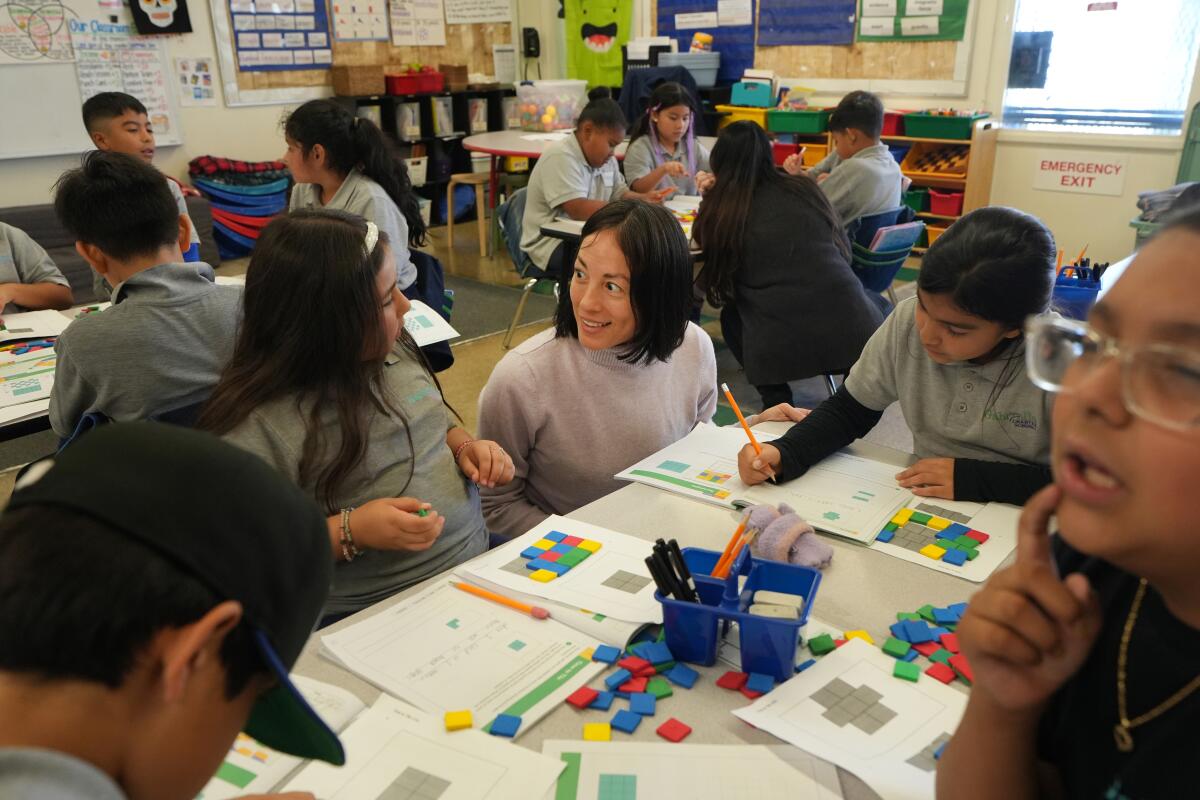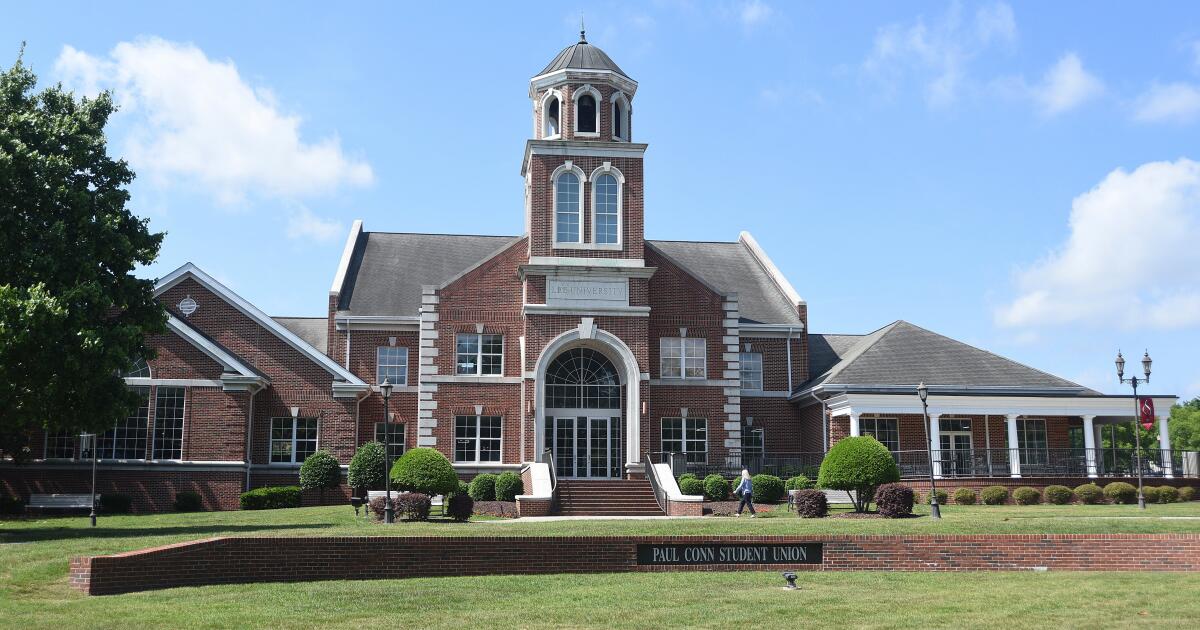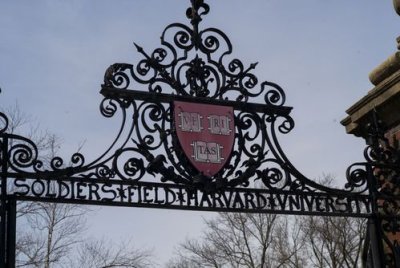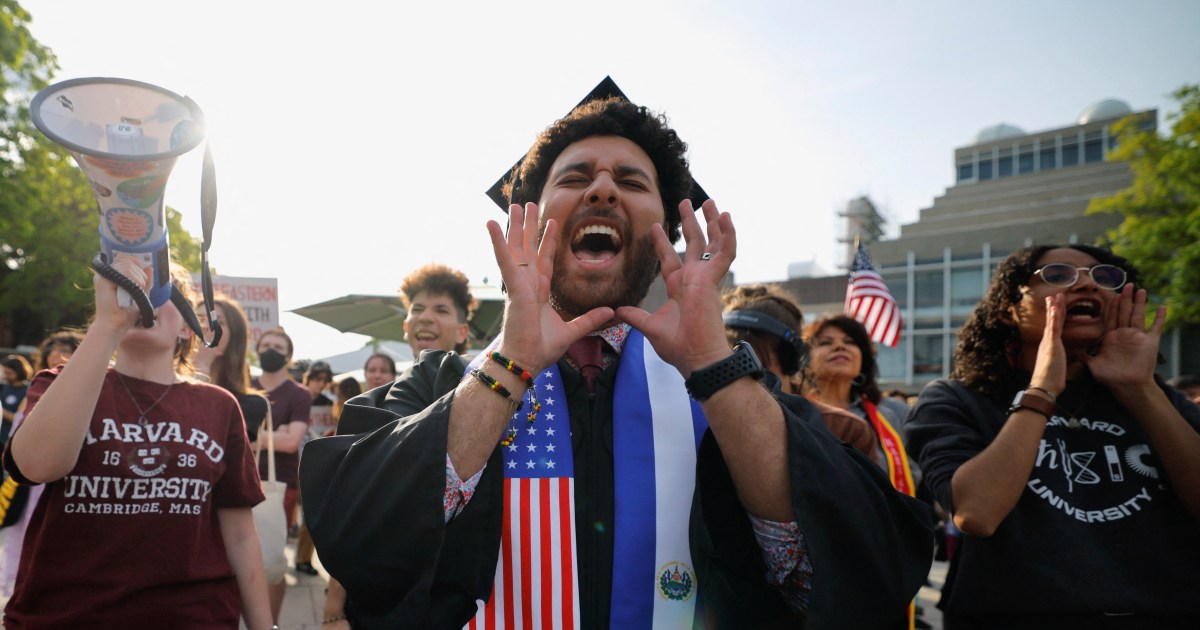A popular charter faces closure to make more room for an LAUSD school
A divided Los Angeles school board has voted to shut down a popular charter school to make more space for its own program on the same Echo Park campus, pushing the boundaries of state law and school district authority over charters.
The 4-3 vote late Tuesday denied a renewal authorization for Gabriella Charter School, which means the 400-student school specializing in dance instruction, can’t operate beyond the end of the current school year.
Although county education officials could act independently to renew the charter, the L.A. school board decision still means Gabriella would be essentially evicted from the campus and the dance studios built for its use.
Board member Rocio Rivas, whose district includes the school, said the move was necessary to protect the interests of the district-operated school and the nation’s second-largest school system.
“This multiuse agreement has not worked,” Rivas said. “It meets the needs of Gabriella, but it’s not meeting the needs of the district. So as far as I’m concerned, this multiuse agreement should be nullified.”
A spokesperson for Gabriella said Wednesday morning that the school was considering its legal options.
The California Charter Schools Assn. spoke strongly in defense of Gabriella.
“This decision is a backhanded strategy to push Gabriella out of its longtime home on an LAUSD campus — a site the District itself invited Gabriella to share with a district-run school back in 2009,” said Keith Dell’Aquila, who leads advocacy work for the association in the L.A. area. “For 16 years, Gabriella has served countless students at that location with excellence and stability.”
The case highlights the resolve of school board members, aligned with the teachers union, to target a non-union charter school to further the aspirations of a district-operated campus.
Third-grade teacher Karla Balani helps with instruction at Gabriella Charter School.
(Karla Gachet/For The Times)
Why charter schools draw political controversy
Charters are privately operated public schools that compete for students. Charter supporters view their educational offerings as a way to spark innovation and provide needed public school competition — and simply to offer parents more choices.
Some supporters have also wanted a foothold to weaken the influence of teacher unions and build a bridge to more controversial school-choice strategies, including using public-school funds to pay for private school tuition.
Most charters are non-union and have typically been opposed by teacher unions.
Charters have enjoyed a degree of bipartisan support and were long able to shape California laws in their favor, but their political clout in the state has somewhat declined.
L.A. Unified oversees 235 charters, more than any school system in the country, and many of these started when school boards had little authority to reject them. About 1 in 5 L.A. public school students attend charters.
Gabriella has shared a campus with the district-operated Logan Academy for Global Ecology, which includes a dual-language program in Spanish and English. Both schools offer transitional kindergarten through eighth grade.
For the Logan community the charter has long been an unwanted detraction from their efforts. And they saw the renewal process as a chance to act because the board majority has become more strongly anti-charter.
Staff at Logan said Tuesday that they need more space to offer a full middle-school program on a campus that served only elementary grades for most of its 137-year history. The middle grades were added to help sustain the school.
Logan also has become a designated community school, which offers a wider range of support services for students and families, typically including health care, tutoring and counseling. And these services, too, require space.
“The fact that Logan Academy is a community school, is now a span school — circumstances for them have changed, and that is what we need to take into consideration,” Rivas said.
Third-graders practice dance in jazz class.
(Karla Gachet/For The Times)
State protections for charters
California law gives charter schools the right to use public-school facilities that are “reasonably equivalent” to those available to other public-school students.
The L.A. school board majority tested the limits of these state rules when it voted 4-3 in 2024 to give preferences to district-operated schools and ban outright the sharing of hundreds of campuses.
In a June 27 ruling, a judge concluded that the policy unlawfully “prioritizes District schools over charter schools and is too vague … To the maximum extent practicable, the needs of the charter school must be given the same consideration as those of the district-run schools.”
Under that ruling and others, courts have found that charters, such as Gabriella, are entitled to space for similar resources that the district would claim it for.
State law also sets up a process through which charter schools can request and share campuses. The process restarts every year and has resulted in annual uncertainty both for charters and others sharing the campuses.
School districts also have the option of reaching other sorts of agreements with charters. That is what happened at Logan, where the school district agreed to a multiyear lease. That lease has coincided with the full term of the charter renewal.
For Gabriella, the arrangement avoided the instability of having to move from place to place each year — especially because most elementary schools are not outfitted with dance studios.
Logan was specially modified to accommodate Gabriella’s unique program. A benefit to the district was that Gabriella became a feeder program to the district’s new arts-focused high school downtown.
Ending the multiyear lease for Logan was a high priority for Rivas.
“If this — the charter … is not renewed, then that pretty much severs their multiyear agreement,” Rivas said.
Students practice their dance at Gabriella Charter School.
(Karla Gachet/For The Times)
Impact of declining enrollment
Enrollment at Logan Academy has been trending downward, much like in the school system as a whole. Last year’s enrollment totaled 91 students in kindergarten through second grade. Three years earlier that comparable figure was 139 students.
In 2014, the school had 486 students. Last year the number was 362.
The charter school’s enrollment also is down — from a peak of 468 in the 2020-21 school year to 396 last year.
Official figures are not yet available for this year, but enrollment across the school system appears to be lower, per preliminary estimates.
Rivas said Tuesday that Gabriella had been an uncooperative tenant that flouted financially responsibilities and had, therefore, forfeited any inside track to renewal.
At the Tuesday meeting, it was brought up that the charter did not participate in a recent fire drill. It’s leaders have pledged to do so in the future.
More serious is a long-simmering dispute over whether the charter has paid an appropriate amount for use of the campus. As the charter renewal date approached, the charter leaders yielded and made an $800,000 payment to the school system. That issue has yet to be resolved.
One disputed issue is that the school district raised the usage fee retroactively — to cover a period of time that already had ended,
Board staff recommended a five-year renewal, saying the school had met the legally required academic performance standard. A charter school also can be denied renewal if it is fiscally unsound, but district staff concluded that, too, was not grounds for denial.
Board member Nick Melvoin, who voted to renew the charter, wanted to know the legal basis for rejecting it.
The answer from staff was that the decision could be based on the board’s citing of past financial disagreements that have not been entirely settled.
Melvoin strongly disagreed with the outcome.
“Co-locations are tough, and I have a lot of empathy and understanding for Logan,” Melvoin said. “I think that it’s really incumbent upon us, the adults who are the stewards of the children in this situation, to come to creative solutions on behalf of kids.”
“You have two K-8 schools that are pulling almost the same number of kids from that community,” he added, “and I think we owe it to them to try to work something out.”
Opposing the renewal were Rivas, Board President Scott Schmerelson, Karla Griego and Sherlett Hendy Newbill. Favoring renewal were Melvoin, Kelly Gonez and Tanya Ortiz Franklin.




